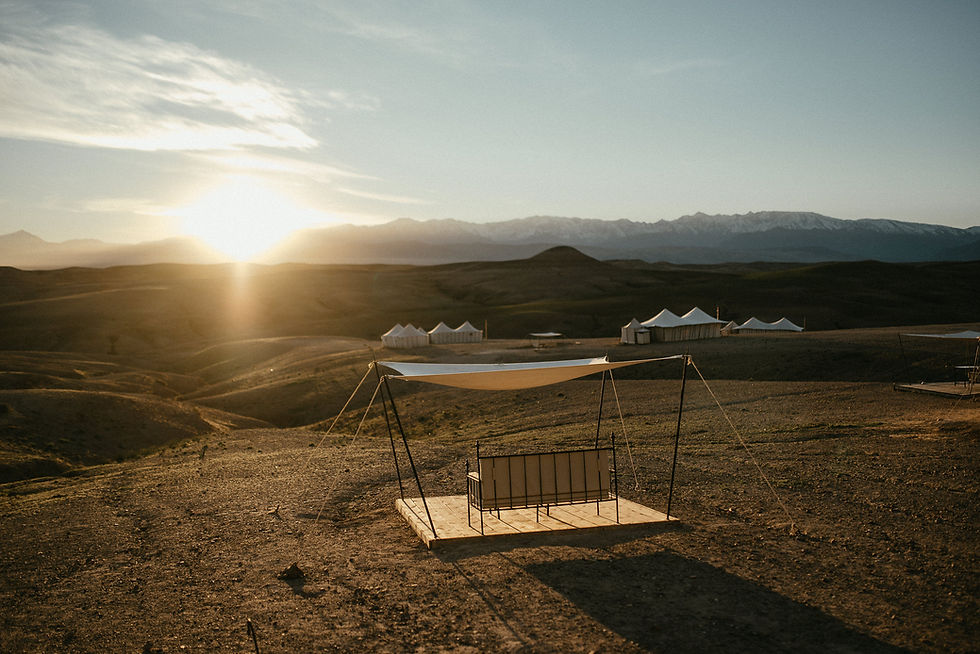Lifestyle | 10 Tips For Living Sustainably
- Jan 19, 2020
- 3 min read
Updated: Feb 7, 2021
Being sustainable is in the roots of our values and we want to show you how to live a sustainable life by making some small tweaks to your everyday life.
The earth have limited resources and we need to meet our present needs without compromising the ability of future generations to meet their own needs. The big question is whether we are going to make changes now or wait until it is too late. Changing can be overwhelming, but it all starts with small personal choices. We have put together 10 tips on how to live more sustainable, so you can pick the ones that work for you.

1. Over Consumption
Don't automatically opt for buying something new, when you need a change. Tidying up your closet or rearranging furniture can be enough to satisfy your desire for change. We enjoy rearranging our shelving decoration every few months to change the mood of the living room.
2. Charity Shops
Before you throw anything away, please consider if it can be recycled, re-sold, donated or up-cycled.
Charity shops will generally take clothes, homeware and furniture of your hands and re-sell them with the profits going to their chosen charity. Your unwanted stuff are now helping others and are not ending up in a landfill somewhere instead.
3. Recycling Schemes
Bigger retail chains are now also accepting recycling items, either in terms of garments, packaging, electronics etc and in return give you a voucher to take of x-amount of your next purchase with them. Retailers such as H&M, Levis, Apple, Mac cosmetics, Other Stories, Windows and Kiehl's among others all have a recycling scheme that is worth looking into.
4. Re-Selling
Re-selling your unwanted items, is a great way to ensure your items get recycled and earn a few bucks along the way. If eBay is not your thing, there are plenty of other options such as Asos Market Place, thredUp, Kidizen, Shpock and Vestiaire Collective to mention a few. By re-selling you are extending the life of that product, which means that you help reduce reliance on disposable single-use made products that ends up in landfills all over the world.
5. Up-cycling
Breathe new life into old items with a bit of creative thinking and some DYI skills. Pinterest is a great tool for looking for up-cycling ideas. We like to up-cycle mason jars to keep store produce in the fridge.
6. Longevity
When in investing in something new, sustainability can be achieved by ensuring that what you buy is made from natural durable materials, is of high quality and have a timeless aesthetic to make it relevant throughout time
7. Natural Materials
We recommend investing in long lasting products made from natural materials. So if the time comes to replace them, the material can be broken down when put into a compost pile, as natural materials are biodegradable or they can easily be recycled.
8. Plastic Bottles
Plastic pollution impacts every corner of our planet, so buy a reusable bottle to avoid contributing to needless waste. In the UK alone, around 7,7 billion plastic bottles are bought each year resulting in substantial amounts of single-use plastic waste. There can be several reasons why you buy bottled water, but if you don't like the taste of tap water, invest in a filtration system. Buy a couple of reusable bottles, to keep at home, in your bag and at work to always have one handy when you need it.
9. Disposables
Disposable items such as single-use, straws, razors, food containers, cutlery, bags possible have the shortest life expectancy. So when you make a purchase please consider how many times you can use the item and if it is only once or a few times, it is not a very good investment for you wallet or for the planet.
10. Electricity
Turn off your lights, TV and other household devices when not in use. Even the most efficient models will not save you any money if it is left on unnecessarily. It is worth noting that a lot of household devices will still consume power, even when they are turned off, this is known as phantom power. So go on, unplug your hairdryer, phone charger, coffee machine, toaster and iron as 75% of the energy used by home electronics is consumed when they are turn off.

“The truth is: the natural world is changing. And we are totally dependent on that world. It provides our food, water and air. It is the most precious thing we have and we need to defend it.” ― Sir David Attenborough



Comments